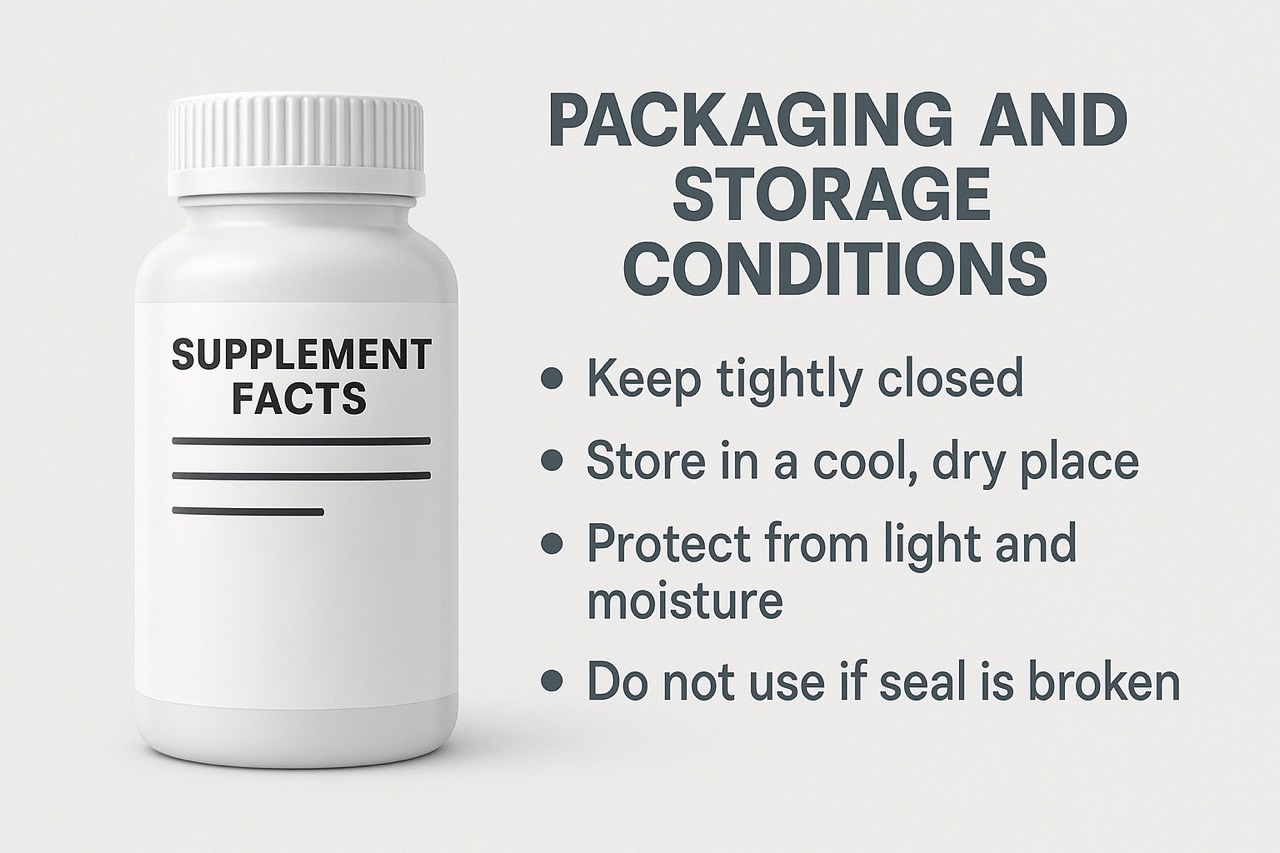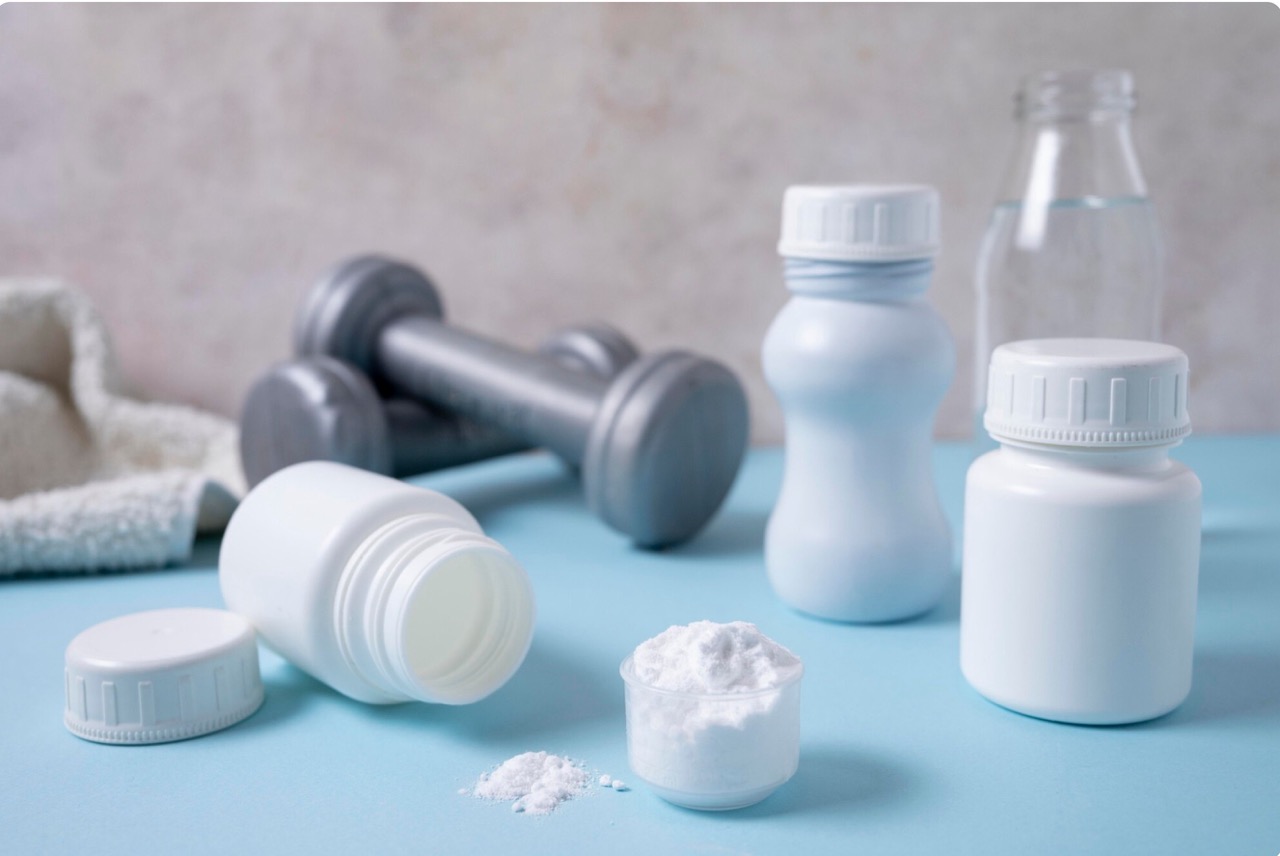Imagine you are holding a bottle of multivitamins that expired three months ago. Should you take it or not? This scenario is one that many people face, and it often leaves them uncertain about what to do next.
Expired supplements are a common dilemma, especially in Indian households where keeping a stock of vitamins and medicines is often part of everyday life. Many individuals wonder whether it is safe to continue using expired multivitamins or other supplements.
While it might seem convenient to use them rather than discard them, it is important to understand the potential risks involved. Generally, it is best to exercise caution and prioritize safety when it comes to expired health products.
In this blog, we will address key questions such as: Are expired supplements dangerous? Can they lose their potency over time? And how can you tell when it is time to throw them out? By exploring these aspects, you will be better equipped to make safe and informed choices about the supplements in your household.
What Does ‘Expiry Date’ Really Mean on a Supplement?

The expiry date on a supplement label is more than just a suggestion. It represents the last day the manufacturer guarantees that the product will maintain its full potency and safety when stored under proper conditions.
After this date, the effectiveness of the active ingredients may decrease, and the safety cannot be assured. It is advisable to adhere to these dates to ensure you are receiving the intended benefits and to avoid any potential risks.
There are differences between various date types that appear on supplement packaging. The expiry date marks the end of the best potency period, beyond which the product’s quality cannot be guaranteed. The manufacturing date (MFD) indicates when the supplement was produced or packaged, helping you determine the age of the product, though it does not specify how long it remains effective. Terms like “Use By” or “Best Before” are common on Indian labels and indicate the date until which the product is expected to remain in optimal condition. “Best Before” generally refers to quality and potency rather than safety, but in some cases, it aligns closely with the expiry date.
In India, the Food Safety and Standards Authority of India (FSSAI) plays a crucial role in regulating these labels. According to FSSAI regulations, nutraceuticals, Ayurvedic supplements, and herbal products must display clear and accurate expiry dates on their packaging. This ensures consumers are well-informed about the product’s safety and potency timeline, promoting transparency, quality, and safety in health-related products.
The Food Safety and Standards (Health Supplements, Nutraceuticals) Regulations, 2016 which governs labelling, claims, and product composition, also mandates the inclusion of manufacture date, expiry or best-before dates, storage instructions, batch identification, and allergen information.
How to Check if a Supplement is Safe After Expiry
Determining whether an expired supplement is still safe requires a systematic approach. Here are the steps to evaluate it properly.
1. Check the Packaging and Storage Conditions

Begin by assessing how the supplement has been stored. Was it kept away from heat, moisture, and direct light? Proper storage instructions, such as keeping products in a cool, dry place, are essential for maintaining quality, potency, and safety. Many labels include these guidelines to prevent premature degradation.
If the supplement was stored correctly and is only slightly past its expiry date, it may still be safe, although its potency could be reduced. However, factors like the type of product, any changes in smell, colour, or texture, and manufacturer recommendations should be considered.
For safety and efficacy, consulting a healthcare professional is recommended before consuming products which are past their expiry date.
2. Inspect the Physical Appearance
A visual and sensory inspection can reveal signs of degradation. Look for colour changes, which may indicate deterioration, oxidation, or contamination. While slight variations might not immediately compromise safety, significant discoloration warrants discarding the product.
A foul odour is a strong indicator of spoilage, bacterial growth, mold, or chemical breakdown, and the product should be avoided to prevent adverse effects.
Broken or sticky tablets suggest damage from handling, moisture exposure, or ingredient degradation, compromising dosage accuracy and safety.
In the case of powders, clumping often points to moisture exposure, poor storage, age, or potential contamination, making the product unreliable.
For chewable tablets or powders, changes in taste could result from degradation of active ingredients, exposure to moisture or heat, contamination, or aging, and should prompt discontinuation if accompanied by other spoilage signs.
3. Review the Type of Supplement

The nature of the supplement influences how it degrades. Water-soluble vitamins (such as B-complex and Vitamin C) tend to lose potency over time, especially if not stored properly. But they are rarely harmful even after diminishing effectiveness. Proper storage in a cool, dry place away from light can help preserve them longer.
Fat-soluble vitamins like A, D, E, and K are generally stable but can degrade with exposure to heat, light, or oxygen, and potentially form by-products that are less beneficial or (in rare cases) harmful. For example; if oil turns rancid, it can cause digestive discomfort.
Probiotics and enzymes become mostly ineffective past expiry. When live bacteria die out and enzymes denature, it reduces the benefits of probiotics for gut health or digestion. While often harmless, they may pose contamination risks for immune-compromised individuals.
Ayurvedic liquids and decoctions carry a higher risk of microbial growth due to their water-based composition and natural ingredients, which can lead to infections or spoilage if not stored properly. Signs like changes in smell or appearance indicate issues.
Herbs such as turmeric, ginseng, ashwagandha, and amla lose potency when exposed to moisture, reducing their antioxidant and adaptogenic effects. If not stored well, they may also develop microbial growth.
Chyawanprash, herbal powders, and tablets are especially vulnerable to mold during the monsoon if not kept in airtight containers.
Supplements like omega-3s, flaxseed oil, and evening primrose oil are highly prone to oxidation, forming harmful compounds that irritate the gut and raise oxidative stress. In Indian tropical heat, omega-3 oils can spoil even before expiry if not stored properly.
Once expired, protein powders can attract mold or bacterial contamination, particularly in humid climates.
4. Cross-check Ingredients and Sensitivities

It is vital to consider personal health factors. For individuals with autoimmune conditions, even degraded binders or trace allergens like gluten or dairy residues can trigger immune responses or flare-ups, as these substances may remain in supplements and provoke reactions. Choosing allergen-free products and verifying ingredients is essential.
If you are managing a chronic illness, avoid expired supplements altogether, as they may lose potency, become contaminated, or develop harmful microbial growth, and potentially interfere with treatment or exacerbate symptoms. Reduced efficacy from degraded ingredients can hinder health progress. So, it is advisable to discuss supplement choices with a healthcare provider.
What Happens If You Take an Expired Supplement?
Consuming an expired supplement can have varying consequences, depending on the product and individual circumstances.
1. Reduced Effectiveness
One of the primary outcomes is that you may not receive the benefit you are expecting, leading to wasted effort and money. This is particularly true for therapeutic or deficiency-specific supplements, where precise doses are crucial for managing conditions or correcting deficiencies.
Apart from diminishing efficiency, degradation can form harmful compounds resulting in delayed treatment, worsening symptoms, or a false sense of security.
For instance, in immunity support, an expired vitamin C or zinc supplement may fail to provide the intended boost during flu season. Similarly, for chronic conditions like anaemia or thyroid imbalance, reduced potency can delay improvement.
Specialized nutrients like probiotics and omega-3 fatty acids degrade faster, making their post-expiry use particularly unreliable. Expired probiotics may contain far fewer active cultures, reducing benefits for bloating, IBS, or immune support. Oxidized Omega-3 oils not only lose benefits but may cause digestive discomfort.
For growing kids, an expired children’s multivitamin may lack enough vitamin D and iron, affecting immune defense and bone growth.
During pregnancy, expired prenatal supplements may fall short on folic acid and DHA—key for fetal neural development.
Maintaining bone health may also be compromised since calcium and vitamin D supplements past expiry aren’t reliably effective.
Boosting energy with degraded B-vitamin complexes may fail to support energy metabolism, leaving users fatigued despite supplementation.
Supporting heart health with expired omega-3 oils is unreliable, as oxidation reduces benefits and increases risk of digestive discomfort.
Fitness goals may also be impacted, as expired creatine or electrolytes may clump or harbor microbial contamination in humid conditions—ineffective at best, unsafe at worst.
Cognitive focus can be undermined if outdated supplements like ginkgo or DHA fail to support clarity, concentration, or brain health.
Managing blood sugar with old berberine or alpha-lipoic acid may not help blood sugar balance, raising the risk of uncontrolled glucose.
Eye protection efforts may falter since expired lutein or astaxanthin lose their antioxidant power, failing to protect against retinal oxidative stress.
2. Potential Health Risks
There are also safety concerns. Spoiled capsules or oils can lead to or further aggravate stomach upset, headaches, or toxic reactions due to degradation or contamination. For example, oxidized omega-3 oils not only lose benefits but may cause digestive discomfort.
Immune-compromised individuals are more sensitive to degraded compounds, as their systems are less able to combat harmful substances, increasing vulnerability to infections or severe reactions from contaminants like bacteria or mold.
In rare cases, certain supplements (such as botanical extracts or protein powders) can develop microbial growth, especially in humid climates, and thus pose additional hazards.
How Long Are Supplements Usually Good For?
The shelf life of supplements varies based on type, formulation, storage, and packaging, but most have an expiration date indicating expected potency and safety.
Indian supplements typically feature traditional ingredients like turmeric, ashwagandha, and herbal blends, adhering to regulatory standards.
Capsules and tablets usually last 18–36 months, Ayurvedic churnams and tablets have a shelf life of 1–3 years, and liquids or syrups are good for 6–12 months due to higher susceptibility to spoilage. Probiotics and digestive enzymes are generally good for about 1-2 years, though their shelf life varies significantly by product and storage method.
Always check the “Shelf Life” if the expiry date is not clearly marked to ensure you are using the product within its optimal period.
How to Dispose of Expired Supplements Safely
Proper disposal is important to prevent environmental harm and accidental ingestion. Do not flush or pour supplements down the sink, as this can contribute to water pollution, with substances potentially contaminating sources since they may not be fully filtered by treatment plants. Instead, wrap them in paper and discard with dry waste.
If no take-back programs are available, mix them with undesirable materials like coffee grounds, seal the mixture in a bag, and place it in the household trash.
Keep supplements away from children and pets during disposal and storage. Use high, locked cabinets or child-proof containers to avoid accidental poisoning. Also, educate family members about the dangers.
Quick Tips to Extend Supplement Shelf Life
To maximize the usability of your supplements, follow these practices.
Store them in a dry, dark cabinet, avoiding the fridge (unless specified) or bathroom due to humidity fluctuations. Keep caps tightly closed to minimize air and moisture exposure.
Do not mix tablets from different bottles, as this can lead to cross-contamination or uneven degradation.
Avoid using pill organizers for long-term storage unless the contents will be used within a week, as they may expose supplements to air and light more frequently.
Not all expired supplements are dangerous, but none are risk-free. Degradation can lead to reduced potency, contamination, or harmful by-products. For those with autoimmunity or chronic health concerns, it is best to avoid them entirely to prevent potential flare-ups or complications.
When in doubt, always check with a healthcare provider or functional medicine expert for personalized advice. By staying informed and cautious, you can ensure your supplements support your health effectively.
FAQs: Expired Supplements in India
Q1: Can I take a supplement that’s just 1 month past expiry?
A: If it has been stored well and shows no physical changes, it may be safe—but not as effective. Avoid if you have underlying health issues.
Q2: Do ayurvedic supplements expire too?
A: Yes. Herbs lose potency over time and may even grow mold or bacteria. Always check MFD and expiry.
Q3: Why don’t some Indian supplements have expiry dates?
A: This is usually non-compliance. All supplements sold legally in India must include shelf life and expiry per FSSAI.
Q4: Can expired supplements trigger autoimmune flare-ups?
A: Yes, especially if they contain allergens or degraded compounds. Immunocompromised individuals should never risk it.
Q5: How do I check if a supplement is still good without a lab test?
A: Check colour, smell, taste, and texture. If anything feels off—even slightly—discard it.



